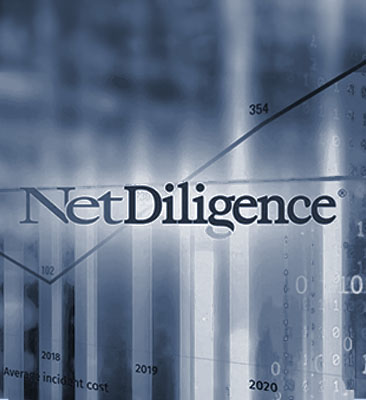Making innovation resilient
Relm Insurance is the leading specialty insurance carrier serving emerging industries, including digital assets & Web3, AI, the space economy, fintech, and beyond. We provide more than just risk protection, we make innovation resilient.
Regular insurers look backwards. Relm looks ahead.
We founded Relm to specifically address the lack of coverage for businesses in groundbreaking industries. Traditional insurance falls short for these innovators because it looks to the past to understand the risks.

Industries
Artificial Intelligence
The artificial intelligence (AI) industry is experiencing unprecedented growth, with applications ranging from healthcare and finance to manufacturing and customer service. The need for insurance becomes paramount as AI systems become increasingly integrated into critical infrastructure and decision-making processes.
Navigating the intricate terrain of AI technology presents unique challenges. Assessing and mitigating risks accurately demands specialized expertise. At Relm, we recognize the complexity and novelty of AI, tailoring insurance solutions to meet the distinct needs of developers, users, and stakeholders alike.
Biotech
The biotech industry stands at the forefront of scientific innovation, revolutionizing healthcare, agriculture, and environmental sustainability. Biotech companies are driving profound societal and economic change with breakthroughs ranging from gene editing and personalized medicine to the development of biofuels and biodegradable materials.
Yet, navigating the path of biotechnological research and development comes with inherent risks that demand comprehensive insurance coverage.
At Relm, our tailored insurance products address the specific needs of biotech companies as they encounter unique challenges, including regulatory compliance, product liability, and intellectual property disputes.
Cannabis
The burgeoning cannabis industry has witnessed remarkable growth in recent years, driven by changing attitudes towards cannabis legalization and its expanding applications in medicine, wellness, and recreation.
However, the complex regulatory landscape, inherent risks of cultivation and production, and evolving consumer preferences underscore the critical need for insurance within the sector.
For businesses seeking to safeguard their investments, navigate regulatory uncertainties, and maintain operational resilience amidst a rapidly evolving competitive industry. Relm offers essential protection against these risks via our integrated underwriting and analyst team, which advises and insures companies across the market.
Climate Tech
The emerging climate tech industry is at the forefront of tackling the pressing challenges of climate change, offering innovative solutions to mitigate carbon emissions, adapt to environmental shifts, and build resilience against extreme weather events.
However, these companies face many risks, including technological failures, regulatory changes, project delays, and liability claims arising from environmental damages or inadequate performance.
Relm provides financial protection against these uncertainties and enables climate tech innovators to confidently pursue ambitious projects and initiatives. We help accelerate the transition to a low-carbon and climate-resilient future by serving as a strategic partner, allowing innovative companies to progress within the rapidly evolving climate tech landscape.
Digital Assets & Web3
The Digital Assets and Web3 industry, characterized by blockchain technology and decentralized finance (DeFi) applications, represents a shift in how value is created, stored, and transferred in the digital age.
As this ecosystem evolves, it encounters various risks that necessitate robust insurance coverage to protect against the inherent vulnerabilities of digital assets, such as theft, hacking, and other cyber threats.
Relm has the longest track record underwriting in these markets, working with companies worldwide and in every sector of the digital asset ecosystem. We provide essential protection against these risks, offering coverage for cyberattacks, theft, fraud, and smart contract failures. By mitigating the financial impact of such incidents in the digital asset ecosystem, Relm helps foster its continued growth and adoption.
Esports
Over the past decade, competitive video gaming events have surged in popularity. Professional gaming tournaments attract millions of viewers worldwide and generate substantial revenue from various sources: advertising, sponsorship, media rights (both online and live streaming), tournament fees for prizes, travel costs paid to players who wear branded merchandise during games and tournaments, and branded merchandise sales.
However, as esports continues to evolve into a multi-billion-dollar industry, their online and offline events entail significant logistical, financial, and reputational risks. Relm offers essential protection against these risks, providing coverage for event cancellation, property damage, liability claims, and cyber threats, helping to facilitate the industry’s sustained growth, professionalism and continued success as a global entertainment phenomenon.
Fintech
The fintech industry is transforming traditional financial services and reshaping how we manage money, conduct transactions, and access capital. As these companies revolutionize banking, payments, lending, and wealth management, they encounter many risks, such as cybersecurity threats, data breaches, regulatory compliance challenges, and operational disruptions.
Relm offers Fintech companies specialized insurance coverage tailored to their unique needs, including cyber insurance, errors and omissions (E&O) insurance, and directors and officers (D&O) liability insurance, to navigate the complexities of the regulatory landscape and address emerging risks in the rapidly evolving ecosystem.
By insuring these companies in an increasingly competitive and dynamic marketplace, Relm supports the fintech industry’s success and allows them to drive innovation, resilience, and trust in the global financial ecosystem.
Insurtech
Integrating technology and innovation into the insurance sector is revolutionizing how insurance products are developed, distributed, and managed. However, as Insurtech companies deploy new tech, such as artificial intelligence, machine learning, blockchain, and telematics, to improve efficiency, reduce costs, and enhance customer experience, they face cybersecurity threats, data breaches, regulatory compliance issues, and operational disruptions, which can undermine their operations and reputation.
Relm provides essential protection against these risks, offering coverage for cyber liability, errors and omissions, and business interruption. Allowing companies to mitigate financial losses and legal liabilities, Relm enables Insurtech firms to innovate confidently, attract investment, and sustain their growth trajectory in a highly competitive and dynamic marketplace.
Online Gaming
The online gaming industry has experienced exponential growth, becoming a dominant form of entertainment globally. However, with this expansion comes a myriad of risks that necessitate protection.
Online gaming platforms face threats such as cyberattacks, data breaches, server outages, and disputes over virtual assets. These risks can result in significant financial losses, reputational damage, and legal liabilities for gaming companies.
Relm provides essential protection against these uncertainties, offering coverage for cyber liability, business interruption, intellectual property infringement, and player disputes. By mitigating financial risks and safeguarding the interests of gaming companies and their users, Relm fosters a more secure and resilient online gaming ecosystem, promoting continued innovation and growth in the industry.
Payment Processing
The payment processing industry, pivotal in facilitating the transfer of funds between consumers and merchants, faces many inherent risks in its operations. From cybersecurity threats and data breaches to operational disruptions and regulatory compliance challenges, payment processors navigate a complex landscape fraught with uncertainties.
Relm provides crucial protection against such risks, offering coverage for cyber liability, data breach response, errors and omissions, and regulatory fines. This enables businesses to conduct transactions confidently and trustfully.
As the industry further evolves with advancements in technology, such as mobile payments, digital wallets, and blockchain-based solutions, new risks and vulnerabilities emerge. Relm is situated to understand, advise, and underwrite tailored solutions for the Payment Solution market as it progresses.
Psychedelics
With growing interest in the therapeutic potential of substances like psilocybin, MDMA, and LSD for mental health treatment and wellness, the nascent psychedelics market is expanding.
However, as it does so, it encounters various risks and uncertainties that highlight the need for Relm coverage. Therapy clinics, research organizations, and pharmaceutical companies face regulatory complexities and legal liabilities that must be mitigated.
Relm enables stakeholders in the psychedelics industry to pursue research, innovation, and patient care with confidence while playing a crucial role in fostering investment and legitimizing the industry as it seeks to establish itself as a mainstream healthcare alternative.
Sharing Economy
The sharing economy has revolutionized traditional business models for accommodation, transportation, and goods sharing via peer-to-peer transactions.
However, this industry’s decentralized nature introduces unique risks that necessitate comprehensive insurance coverage. Participants in the sharing economy, including hosts, drivers, and renters, face various liabilities such as property damage, personal injury, and theft. The absence of traditional employer-employee relationships complicates insurance coverage further.
Relm plays a crucial role in mitigating these risks. We offer coverage tailored to the sharing economy’s unique needs, including liability insurance for hosts and drivers, property insurance for rental assets, and ride-sharing insurance for drivers. By providing financial protection against unforeseen incidents, Relm enables participants to confidently engage in the sharing economy, promoting trust and sustainability within the industry.
Space Economy
The space economy, encompassing satellite launches, space tourism, and extraterrestrial resource extraction, is experiencing rapid growth and diversification. However, the substantial financial investment and inherent risks associated with space exploration and commercialization highlight this industry’s critical need for tailored insurance.
Relm leverages our risk assessment and underwriting expertise to develop innovative insurance products bespoke to the unique needs of the space industry.
We’re for the innovators
The future has always been shaped by new ideas.
At Relm, we believe in the transformative power of innovation, and we’re dedicated to helping it thrive.
We’re not your average insurance company.
We’re a partner in progress.































